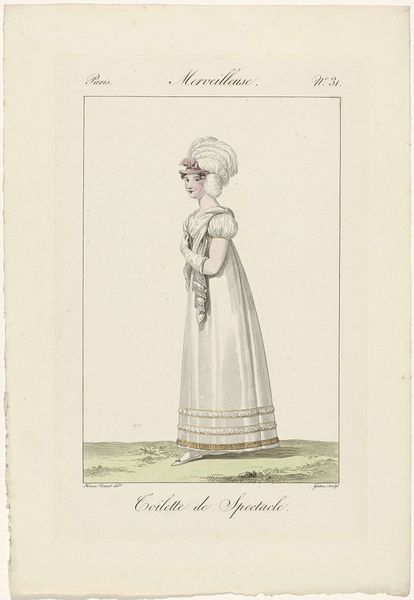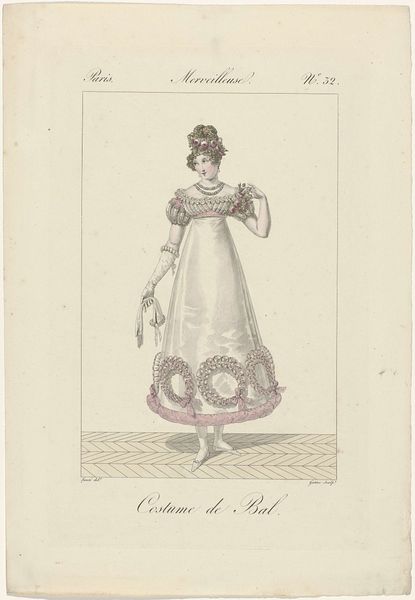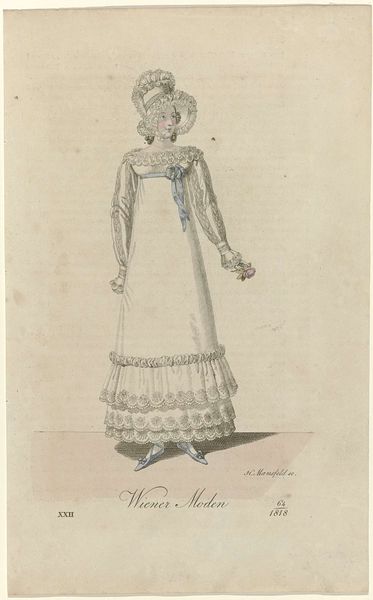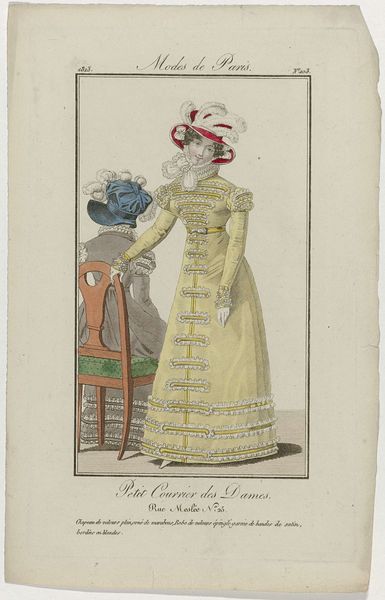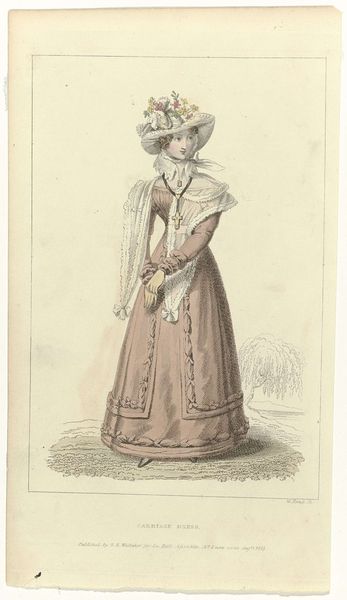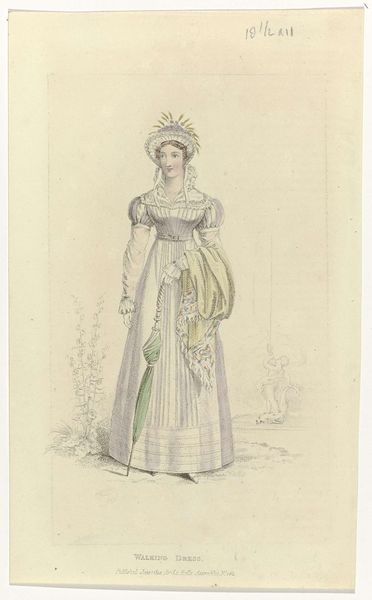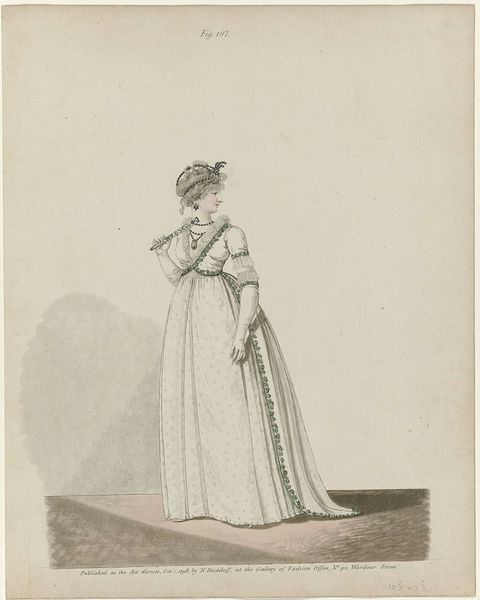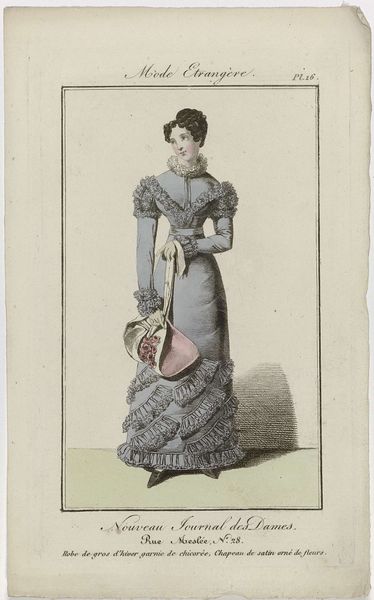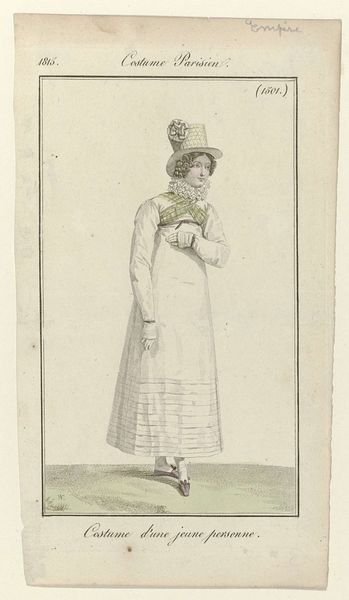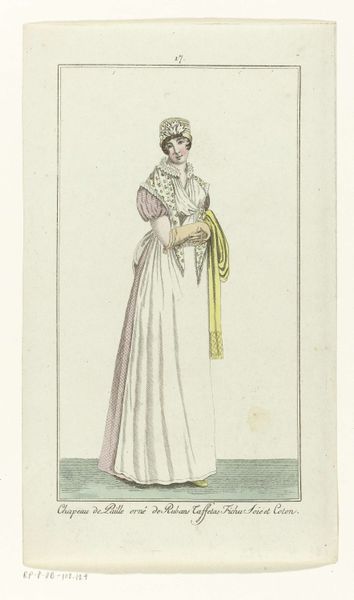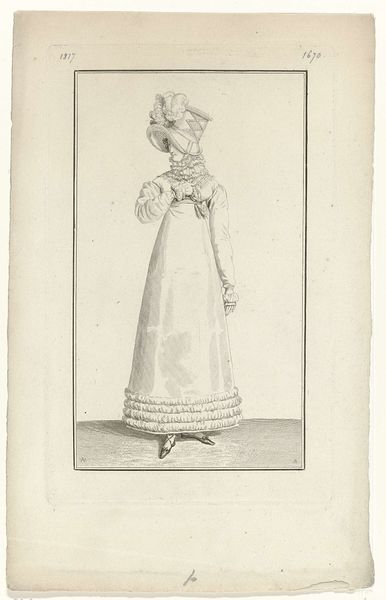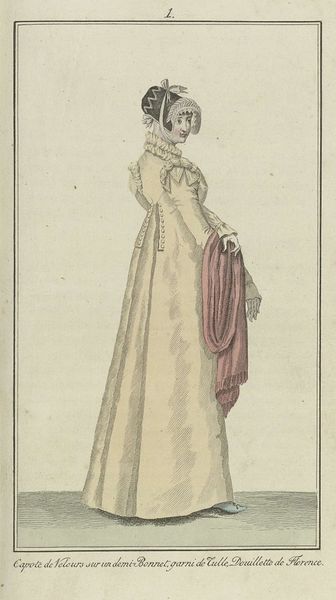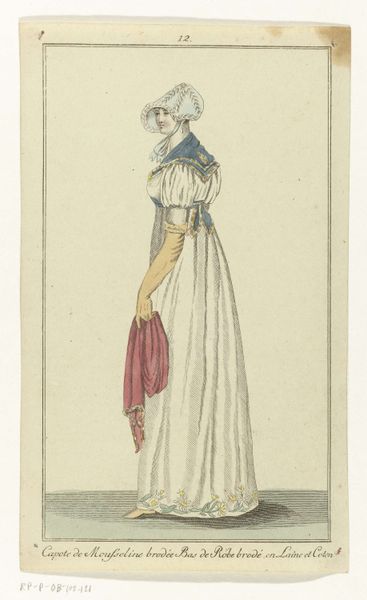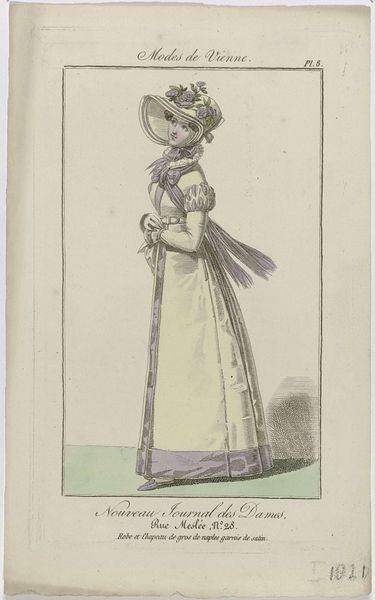
Incroyables et Merveilleuses, 1812, Merveilleuse, No. 22 (ter): Robe à la Vierg (...). 1812
0:00
0:00
drawing, watercolor
#
drawing
#
neoclacissism
#
watercolor
#
watercolour illustration
#
history-painting
#
dress
Dimensions: height 357 mm, width 227 mm
Copyright: Rijks Museum: Open Domain
This fashion plate, ‘Merveilleuse, No. 22,’ created around 1812 by Georges Jacques Gatine, presents a study in early 19th-century sartorial elegance, rendered with delicate lines and muted watercolors. The composition divides the figure into distinct visual zones: the elaborate feathered headwear, the soft, puffed sleeves juxtaposed against the bodice, and the lower portion with its bold plaid pattern. This deliberate structuring invites us to consider how each element contributes to the overall effect, creating a dialogue between texture and form. Gatine’s use of line to define shape and space flattens the figure, emphasizing silhouette over volume. This flattening can be interpreted as a commentary on the period's aesthetic ideals, where fashion served as a signifier of social identity and cultural values. The plaid, a disruption of the smooth upper half, signifies a departure from neoclassical sobriety and an embrace of novelty. Ultimately, this print functions as a complex interplay of signifiers, reflecting the shifting cultural codes of its time. It reminds us that fashion, like art, is always a construction, negotiating between representation and reality.
Comments
No comments
Be the first to comment and join the conversation on the ultimate creative platform.
